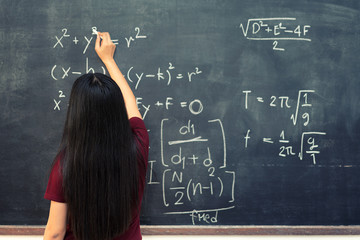Introduction
Mathematics is often the make-or-break subject for JEE aspirants. To improve accuracy in JEE mathematics, it’s essential to solve problems carefully, avoid careless mistakes, and manage time effectively. Many students lose marks due to calculation errors, misreading questions, or rushing through problems.
The good news is that accuracy is not just about talent—it can be improved with smart strategies, consistent practice, and focused problem-solving. In this guide, you’ll discover effective ways to improve accuracy in JEE mathematics and boost your scores confidently.
Understand Common Mistakes and How to Avoid Them
The first step to improving accuracy is understanding where errors occur. Common mistakes include:
-
Misreading questions or overlooking data
-
Calculation errors in long expressions
-
Confusing formulas or theorems
-
Ignoring units or problem conditions
Tip: Keep a mistake log to track recurring errors. Review it regularly to avoid repeating the same mistakes.
Strengthen Your Fundamentals
Accuracy depends heavily on conceptual clarity. Weak fundamentals lead to careless errors under pressure.
-
Review all key formulas, theorems, and identities
-
Understand derivations instead of memorising.
-
Practice basic problems repeatedly to reinforce concepts
Pro Tip: Even top scorers revise basic formulas daily to avoid mistakes in advanced problems.
Practice Smartly and Strategically
Practice is critical, but smart practice beats sheer volume:
-
Solve previous years’ JEE questions to get familiar with patterns.
-
Conduct timed practice sessions to simulate exam pressure.
-
Focus more on weak areas while maintaining strength in your strong topics.
Tip: Gradually increase difficulty while solving topic-wise questions.
Follow Step-by-Step Problem Solving
Rushing through questions leads to careless errors. Develop a stepwise approach:
-
Read the question carefully at least twice.
-
Identify knowns and unknowns.
-
Choose the correct formula or method.
-
Write intermediate steps clearly.
-
Recheck calculations before moving on.
Pro Tip: Never skip steps, even if the solution seems obvious—this helps spot errors early.
Use Shortcuts and Tricks Wisely
Shortcuts save time but can backfire if used incorrectly:
-
Learn shortcuts only after mastering basics
-
Practice them repeatedly to minimize mistakes
-
Use tricks to supplement your knowledge, not replace it
Example: Factorisation tricks in algebra can save time, but a small sign error can lead to a wrong answer.
Maintain Neat and Organized Calculations
Messy work increases errors:
-
Write numbers clearly; avoid excessive crossing out
-
Note intermediate steps in margins if needed
-
Align columns in arithmetic calculations to prevent confusion
Pro Tip: Neat calculations reduce careless mistakes and improve confidence.
Manage Time Efficiently
Time pressure often leads to mistakes:
-
Allocate time based on topic difficulty and marks weightage
-
Skip questions if stuck, and return later
-
Practise timed tests regularly to build speed and confidence
Double-Check Answers Strategically
Even top students make mistakes—revision is key:
-
For numerical problems, substitute values to check correctness
-
Re-calculate answers using a different method if possible
-
Verify units, signs, and conditions in every answer
Pro Tip: Reserve the last 10–15 minutes in exams solely for revising answers.
Analyze Your Mistakes
Mistake analysis is crucial to improve accuracy:
-
Track types of mistakes after each mock test: calculation, formula, or conceptual
-
Identify repeated errors and create a correction plan
-
Discuss doubts with teachers or peers for clarification
Tip: Analysing mistakes turns errors into opportunities for improvement.
Stay Calm and Confident
Mental state heavily affects accuracy:
-
Practice deep breathing or mindfulness to stay calm
-
Avoid last-minute cramming; confidence comes from preparation
-
Maintain a positive mindset: “I am prepared and capable.”
Pro Tip: A calm mind improves focus, reduces careless errors, and increases problem-solving efficiency.
Conclusion
Improving accuracy in JEE mathematics is achievable through consistent practice, smart strategies, and disciplined problem-solving. Focus on:
-
Strengthening fundamentals
-
Practicing strategically
-
Following step-by-step methods
-
Maintaining neat calculations
-
Managing time efficiently
-
Checking and analyzing mistakes
With these strategies, you can significantly reduce errors and boost your JEE mathematics scores. Remember, accuracy
y is a skill developed through smart practice and a focused mindset.



